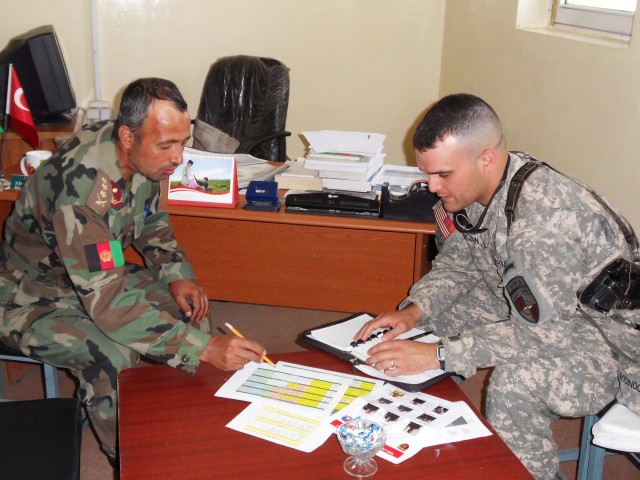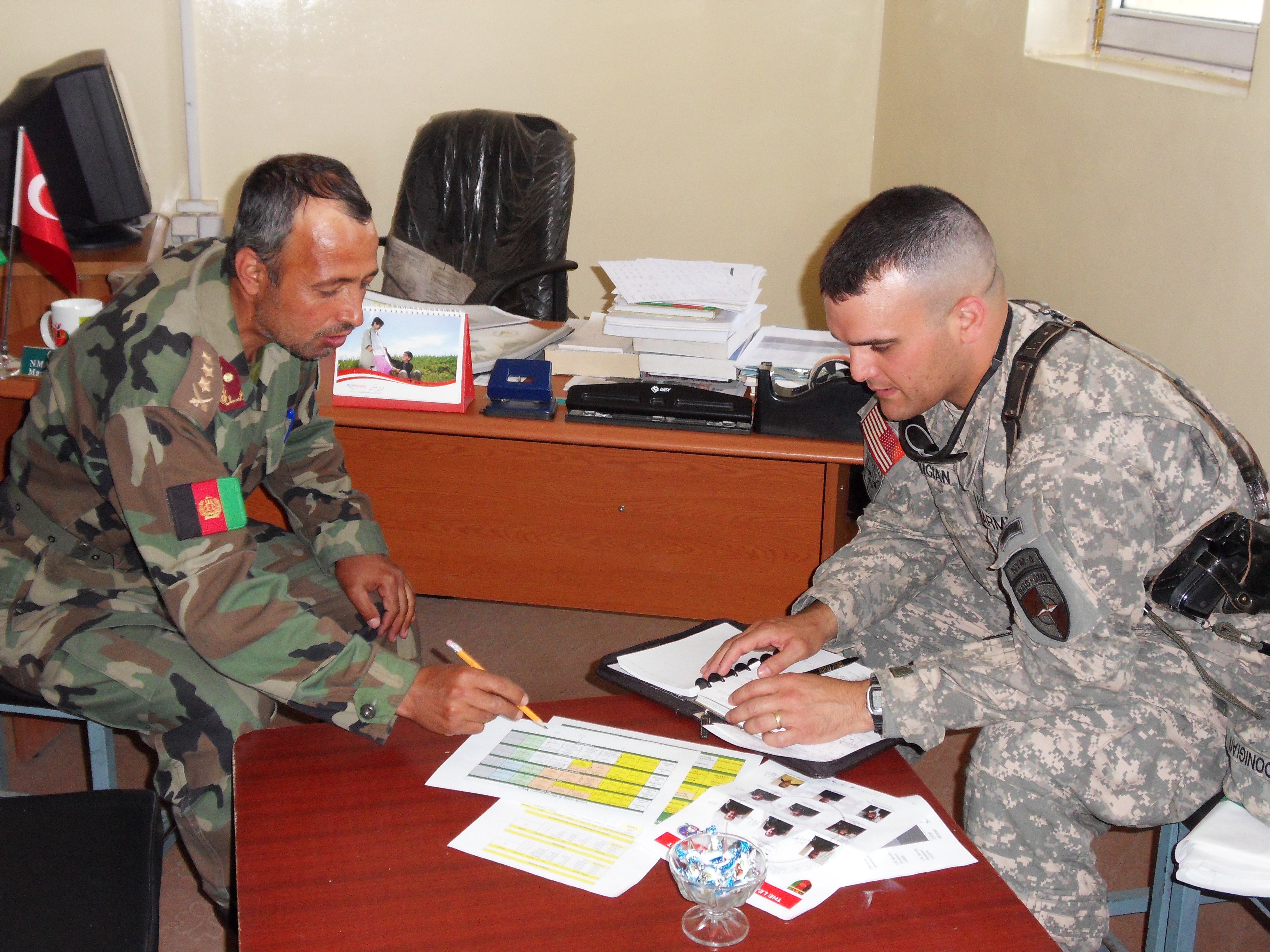
WEST POINT, N.Y. (June 17, 2010) -- The histories of many military teaching institutions often begin in a period of uncertainty, in a time when the need for leaders surpasses the resources available to train them. There has never been a time like the present for the National Military Academy of Afghanistan to begin its own tradition of creating leaders of character.
Fortunately, West Point is there to help the Afghan National Army establish and improve the Kabul-based academy in the midst of the Global War on Terror. Every year, U.S. Military Academy faculty members deploy voluntarily to lend expertise to their NMAA counterparts.
Maj. Aram Donigian, a management instructor in the Dept. of Behavioral Sciences and Leadership, deployed in May with a team of faculty from various West Point academic departments.
Donigian, an Elgin, Ore., native, will serve as a faculty advisor to NMAA's leadership and management program and will also review its curriculum development, class preparation and faculty development.
"When you talk about faculty development, you talk about the methods and strategies used in the classroom to engage students more actively so you improve learning," Donigian said.
The Leadership Management Studies program instructor teaches negotiation and human resource management to cadets here. He will use his two years' teaching experience at West Point to assess the NMAA's management major and give guidance on instruction techniques.
"Hopefully, what I have to offer (as a faculty member) benefits them," Donigian said. "What I'll gain from the experience of being there-the exposure to this great strategy and ideas-hopefully translates to things I can bring back to the classroom here."
The Class of 1998 graduate was a history major as a cadet, when he learned how Thomas Jefferson, although opposed to the idea of standing armies, understood the value of the academy as an institution that united the country. Donigian believes that NMAA serves the same purpose for Afghanistan.
"(NMAA is) bringing in people of many different tribes and regions and unifying them with this focus of serving a country," Donigian said. "That's a powerful mission."
The NMAA faculty has a high rate of rotation, which makes it difficult for West Point faculty to stay connected with instructors there. During his deployment, Donigian hopes to establish new means of communication between the academies, such as video teleconferencing, to enhance professional development with the Afghan instructors.
The five-year-old academy continues to improve upon its methods of developing the future leaders of the Afghan National Army, Donigian said. The partnership between the academies will enhance the overall strategic mission in Afghanistan by training leaders of character on both sides of the globe.
Donigian, of Armenian descent, served in Afghanistan from 2003-04 at Forward Operating Base Salerno in Khost province. During that deployment, he developed an affinity for the people and culture and was eager to return to the country.
The NMAA, which is modeled after West Point and its leader development curriculum, was founded March 22, 2005. On Jan. 24, 2009, 84 cadets graduated and were commissioned as second lieutenants, each with a 10-year service obligation.

Social Sharing